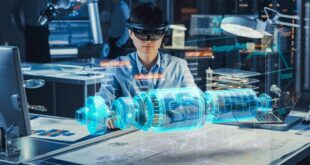Artificial Intelligence (AI) and Machine Learning (ML) have rapidly become integral to various aspects of our lives. From simplifying everyday tasks to driving complex industrial processes, these technologies are transforming how we live, work, and interact with the world. Here’s a look at how AI and ML are affecting our daily routines and society as a whole.
1. Personalized Recommendations
AI and ML are the driving forces behind personalized recommendations in platforms like Netflix, YouTube, and Spotify. By analyzing user preferences, watching habits, and behavioral patterns, these systems suggest content tailored to individual tastes. This not only enhances user experience but also keeps users engaged by providing relevant content, minimizing the time spent searching.
- Shopping and E-commerce: Platforms like Amazon or eBay use AI algorithms to recommend products based on previous purchases and browsing history. These systems predict what a customer might be interested in, driving up sales and improving customer satisfaction.
2. Voice Assistants and Smart Devices
Voice assistants such as Siri, Alexa, and Google Assistant rely on AI and natural language processing (NLP) to understand and respond to commands. These AI-driven technologies have made it easier to control smart home devices, play music, get news updates, or even control lighting and thermostats.
- Home Automation: With smart devices like thermostats, cameras, and lighting systems connected through AI, people can automate everyday tasks. ML helps these systems learn and adapt over time, optimizing settings like energy consumption based on user habits.
3. Healthcare and Well-being
AI is revolutionizing healthcare by enhancing diagnostic accuracy, predicting patient outcomes, and personalizing treatment plans. Machine learning models are capable of analyzing vast amounts of medical data, identifying patterns, and offering insights that may not be apparent to human professionals.
- Wearables and Fitness: Devices like smartwatches track fitness data, sleep patterns, and heart rates. The AI integrated into these wearables interprets this data and provides users with health insights and recommendations to improve their lifestyle.
- Telemedicine: AI-powered chatbots and virtual assistants are being used in healthcare to provide preliminary medical advice, schedule appointments, and guide patients through symptom analysis.
4. Transportation and Navigation
AI has dramatically impacted how we travel. Google Maps and other navigation apps use machine learning to analyze traffic data in real-time, providing the fastest routes and estimating travel times. Self-driving cars, powered by AI and ML, are also becoming more prevalent, and these autonomous vehicles promise to reduce accidents caused by human error.
- Ride-hailing services: Companies like Uber and Lyft use AI to match riders with drivers, optimize routes, and predict rider demand. This improves efficiency and provides a seamless transportation experience.
5. Finance and Banking
AI is also reshaping the financial industry by automating tasks like fraud detection, risk management, and customer support. Many financial institutions use machine learning algorithms to detect unusual transaction patterns, flagging potentially fraudulent activity in real-time.
- Personal Finance Management: Apps like Mint and YNAB use AI to help individuals manage their finances, track spending, and create budgets. These apps analyze transaction data to provide insights into spending habits and offer personalized savings advice.
- Robo-Advisors: Investment platforms are utilizing AI to offer robo-advisors that provide users with automated, algorithm-driven financial planning services. By analyzing market trends, these systems help people make investment decisions without the need for a human financial advisor.
6. Customer Service and Support
AI-driven chatbots have revolutionized customer service, offering 24/7 support to users across a variety of industries. These bots can handle common inquiries, solve issues, and route complex cases to human agents when necessary.
- Customer Engagement: Through sentiment analysis and natural language processing, companies can gauge customer satisfaction and respond appropriately, thereby improving the overall customer experience.
7. Education and Learning
AI is reshaping the education sector by offering personalized learning experiences. Intelligent tutoring systems use machine learning to adapt to each student’s learning pace and style, providing targeted lessons and feedback.
- Online Learning: Platforms like Coursera and edX use AI to recommend courses based on a learner’s progress and interests. Additionally, AI-driven tools can provide feedback on assignments, helping students to improve their skills in real-time.
8. Security and Privacy
AI is also increasingly used in surveillance and cybersecurity. Facial recognition systems, used in public safety and smartphone security, rely on AI algorithms to authenticate individuals. Similarly, AI helps detect cyber threats by identifying anomalies in network behavior.
- Spam Filters and Fraud Detection: Email systems use machine learning to filter spam and phishing attempts, protecting users from cyber threats. In banking, AI systems monitor transactions for any suspicious activity, reducing the risk of fraud.
9. Content Creation and Social Media
AI and ML play a significant role in content creation, whether it’s generating written content, editing images, or creating music. In social media, platforms like Facebook, Instagram, and Twitter use machine learning to curate newsfeeds, recommend friends, and filter harmful content.
- Deepfakes and Ethical Concerns: AI-driven tools can create highly realistic fake images and videos (deepfakes), which has sparked debates about privacy, ethics, and misinformation. It’s an area where AI’s influence requires careful monitoring and regulation.
Conclusion
Artificial Intelligence and Machine Learning are no longer technologies of the future—they are an essential part of our daily lives. From the content we consume to the services we use, AI enhances efficiency, personalizes experiences, and makes tasks more manageable. However, as these technologies continue to evolve, they raise new questions around privacy, ethics, and the societal impact of automation. Embracing the benefits while addressing the challenges will be key to shaping a future where AI improves lives without compromising our values.
 CrunchyChip Discover a Chip of Brilliance
CrunchyChip Discover a Chip of Brilliance




